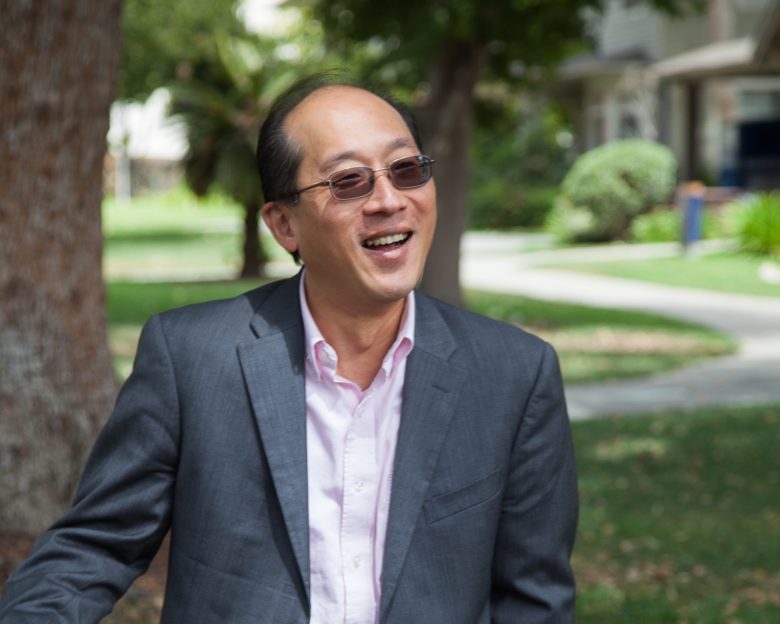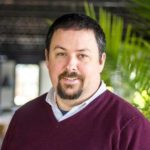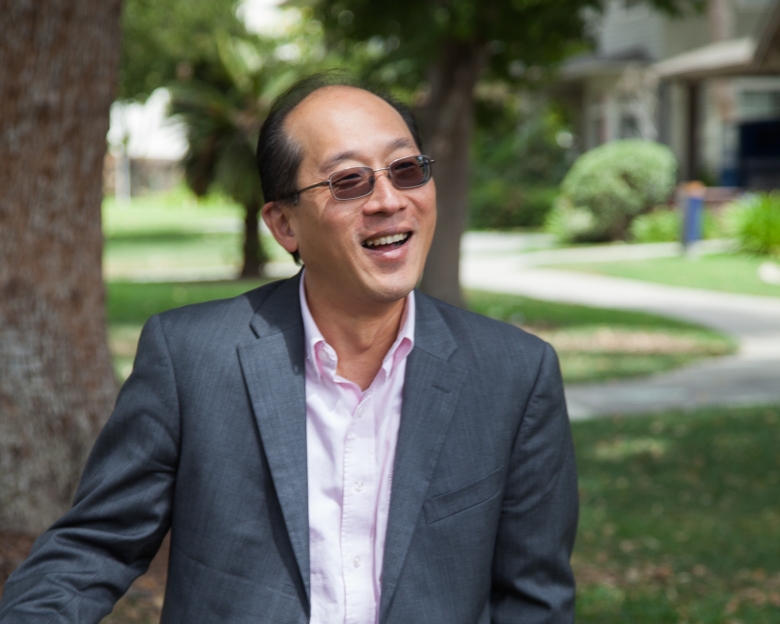
by Ryan Lytton
*Editor’s note: I recently approached Ryan Lytton (author of the second most viewed post in the history of theLAB) asking him to conduct an interview with Fuller Seminary regarding their upcoming move to Pomona. He responded by getting two interviews, the first one with Amos Yong, and the second with Christopher B. Hays. In this first post, Amos Yong, who is Professor of Theology and Mission at Fuller discusses family life as an academic, Fuller’s move to Pomona, and the need for research into the global phenomenon of Pentecostalism.
You’re a somewhat recent addition to the team at Fuller. What has your experience been like so far?
I have enjoyed my time at Fuller; it continues striving to navigate the evangelical-ecumenical space that it has been carving out over the decades.
Your CV is 65 pages long. Yet, you have a family and maintain what seems to be a relatively normal life. How do you do it?
What does “relatively normal” mean? ☺ I am gratefully undeserving of a wonderfully supportive wife, some incredible children, and now a wonderful son- and daughter-in-law, along with three grandchildren; in short, I am incredibly blessed.
There are currently at least three fairly prominent jobs open at Fuller. Could you talk about the culture there, particularly focusing on the type of scholar you hope to see join your team?
Turnover in higher education is fairly normal. Fuller attempts also to be a bridge between church and academia—with its PhD programs on the one side and its Masters in Ministry and in Marriage and Family, etc., which means that we work hard to generate ground-breaking scholarship (in our faculty and our doctoral students) while always being mindful of the changing nature of the church and its mission.
In short, we need academics who also are committed to the life of the church, its missionary witness to a complex world, and able to nurture interdisciplinary (don’t forget we have a School of Psychology also!) scholars, professionals, and practitioners able to serve variously in the domains wherein they have been called.
What kind of advice do you have for someone interested in academia as a career, particularly in light of the current job market?
Be open to going abroad; the church outside North America is exploding and will continue to need academics, faculty, administrators, etc., who can help to build the next generation of institutions of theological education. Learn other languages, especially Spanish, Chinese, and Arabic, that will come in handy in our globalizing world.
Is there a research project in your field that is just waiting for someone to tackle it?
Pentecostalism continues to be one of the fastest growing Christian movements in the majority world. Anything related to understanding pentecostal dynamics and their ecclesial and socio-political & economic interconnections can be helpful.
Fuller has been in Pasadena since its doors first opened. What are your thoughts about the move to Pomona?
With only four years here, I’m less rooted in the Pasadena context and am looking forward to experiencing Fuller’s transformation through embededness in the somewhat more ethnically and racially diverse Pomona context.
How do you think this will impact the institution, both its students and its faculty & staff?
Students will enjoy, we hope, a cheaper cost of living, as will faculty and staff who relocate to the Pomona area; we will still be committed to the global church, but now more appropriately situated within globalizing currents more palpable in the Pomona context.
Fuller has made remarkable progress in making its degrees available online. Are there other innovations happening at Fuller that address the growing tide of quality online education options?
I believe our globally dispersed alumni base will provide platforms for global engagement and we are exploring how to make this happen at the curricular level. Meanwhile, Fuller Studio is our online platform designed to engage not only students and alumni but the global church in its mission.
Is there a plan for a distance PhD anytime soon?
Not concretely, yet, but this may be sooner than I can currently predict—there are always discussions so it’s a matter of making it happen. Stay tuned!
 Ryan Lytton is Director of Academic Services at Ignite-Life Pacific College and a correspondent for the Logos Academic Blog.
Ryan Lytton is Director of Academic Services at Ignite-Life Pacific College and a correspondent for the Logos Academic Blog.




